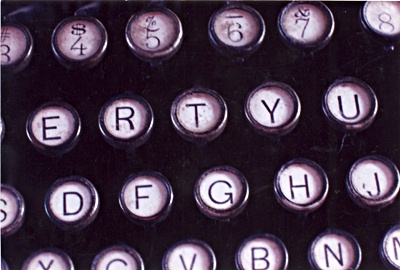All Nonfiction
- Bullying
- Books
- Academic
- Author Interviews
- Celebrity interviews
- College Articles
- College Essays
- Educator of the Year
- Heroes
- Interviews
- Memoir
- Personal Experience
- Sports
- Travel & Culture
All Opinions
- Bullying
- Current Events / Politics
- Discrimination
- Drugs / Alcohol / Smoking
- Entertainment / Celebrities
- Environment
- Love / Relationships
- Movies / Music / TV
- Pop Culture / Trends
- School / College
- Social Issues / Civics
- Spirituality / Religion
- Sports / Hobbies
All Hot Topics
- Bullying
- Community Service
- Environment
- Health
- Letters to the Editor
- Pride & Prejudice
- What Matters
- Back
Summer Guide
- Program Links
- Program Reviews
- Back
College Guide
- College Links
- College Reviews
- College Essays
- College Articles
- Back
Like, We Use "Like" Too Much
“And he was all like. . .”
“And then I was like. . .”
It wasn’t until I started high school that I began to notice a recurring pattern in our speech; a pattern that bugged me, though I wasn’t sure what it was or why. I began to hear it elsewhere as well; in stores, people talking on their cell phones, and especially in the media. One day I switched on my iPod, listening to Cee Lo Green’s upbeat “Forget You.”
“And I’m like, forget you-o-o!”
There it was. I’d caught it that time; he’d used “like” in a way that it wasn’t meant to be used. I began to hear it more and more in songs, on television, even uttered by teachers. It was annoying, and I became irritated when I heard other people using it. About a month later, my mother pointed out that I was “using ‘like’ an awful lot.” As a homeschooler of nine years, I’d never used “like” much. But within one month of suddenly being around it almost 24/7, “like” had sneakily slipped its way into my everyday speech.
Have you ever noticed how you speak? In today’s society, most people talk rapidly and don’t stop to pause—or even breathe, possibly for fear that they’ll be interrupted. Instead of pausing, we use the word “like” to indicate our pauses. Now, we don’t even think about this. But like a highly infectious disease, it’s become an epidemic in our speech. And it won’t stop unless we make a conscious effort to expel it from our language.
The use of “like” as a conversation filler began in the 1970’s. It is commonly stereotyped as a figure of speech that Caucasian, American, teenage girls use. However, it has become something that English-speaking people of all genders, ages, and ethnicities employ.
According to PBS’s John Singler, linguistic studies show that it has appeared in Canada, England, Wales, South Africa, Singapore and Ireland, to name only a few.
The reason why it’s utilized across the world? Simple. Sociolinguist William Labov calls it a “tsunami.” Spreading rapidly, it becomes imprinted into our brains because we hear it used over and over again.
It’s not only “like” that’s overused, or used with numerous meanings. “Just”, “go”, “you know,” and “really” have taken on new connotations as well.
Taylor Mali, English teacher and poet, makes the point that it causes people to seem unsure of themselves, relieving them from taking any responsibility for their own opinions. He mocks our use of language in a piece of slam poetry he performs called “Like, You Know”, commenting, “They’ve been infected by this tragically cool and totally hip interrogative tone, as if I’m saying ‘Don’t think I’m a nerd ‘cause I’ve, like, noticed this okay—I have nothing personally invested in my own opinions, I’m just like, inviting you to join me on the bandwagon of my own uncertainty.’”
And he’s right. It has become common in TV shows and even Young Adult books to portray teenagers overusing “like,” often to suggest their age and denote their low level of intelligence and their uncertainty.
As society constantly shifts and grows, our language changes with it. “Like” became prevalent almost 40 years ago, but will it stick for another 40 years? The answer is, we don’t know. 40 years ago, “groovy,” and “rad,” were also popular, but are considered by today’s teens to be passé.
So don’t adhere to the “stupid teen” stereotype, no matter your age, gender, or ethnicity. By making a conscious effort to stop saying “like”, and pausing to think before you speak, you can eliminate it from your speech.
Like, you know—speak with conviction.

Similar Articles
JOIN THE DISCUSSION
This article has 1 comment.

1 article 0 photos 3 comments